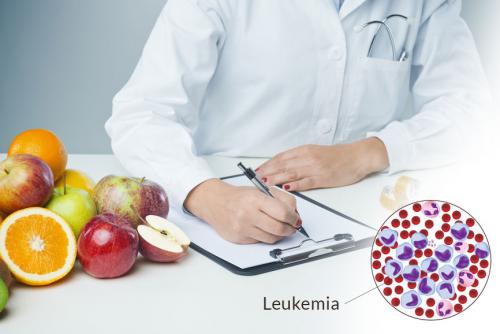How does nutrition therapy help with leukemia?

When an individual is hit with cancer, you can expect fecal and urine incontinence to be one of the major issues in the later stages. Why does this happen?
It happens because gastrointestinal symptoms are common in the cases of cancer. This happens mostly because, in the later stages of cancer, it becomes difficult for the body to maintain its faculties in both physical and neurological manner.
Not to say that digestive issues only tend to happen in the late cancer stages. For malignancies like leukemia, it is necessary to maintain the nutritional ability of the body in order to make the treatments effective. These dietary methods to do so are actually a part of the nutritional therapy, and this sort of therapy has been extremely helpful in not only maintaining the health of the patient but also with improving the effectiveness of the treatment by keeping the side effects to the minimum.
But, how does the nutritional therapy helps with this matter?
Well, you can see that it has been already explained in a succinct manner that a proper nutrition keeps the patient healthy. However, there is a bit more to it. The patients with leukemia, whether they or not they are going through the hematology treatments, do suffer from some sort of nutritional deficiency as well. Incontinences aside, it is these symptoms that are needed to be managed first.
Maintaining the body pre and post treatment
- A person suffering from leukemia needs a lot of vitamin D in order to maintain the integrity of the body. Now, within the sphere of nutritional therapy, the patient would be recommended to intake foods rich in Vitamin D or intake some supplements for the same.
- Now, after the stem cell transplantation has been done with, it is necessary to keep in mind that the blood cell count drops for every type. Therefore, avoiding certain foods that entail raw or dairy products is necessary.
Maintaining the body to decrease the intensity of side effects
Some of the side effects of treatment of Leukemia or any other form of cancer are needed to be dealt with using the nutritional therapy that the doctors/dieticians provide.
- Weight Loss: Over the course of the blood cancer treatment, when the weight starts to reduce, it becomes necessary for you to take some nutritional supplements to get back that weight, as weight loss can be a detriment to the treatments.
- Fatigue: frequent meals that are small in size make sure that the body always has a constant supply of energy.
- Nausea: A low fat, and mildly flavored diet that include ginger, peppermint and seafood is what is used to combat the side effects that entail nausea.
- Anemia: A diet filled with Iron and Folic acid is what is necessary to deal with anemic side effects.
- Constipation: Increasing the fiber intake is the most obvious course of action when it comes to the matter of constipation. Over the course of the article, you might have noticed that we discussed fecal and urinary incontinence in the start. Now, dealing with those issues include diets that include a lot less amount of fiber and exercise that include pelvic region.
Conclusion
Nutritional therapy is not just a simple procedure is a lifestyle. To that end, if you are in fact leukemic, maintaining a proper nutrition is a way to make sure that the treatments do not create issues for you, but rather help you with the entire ordeal.
Comments